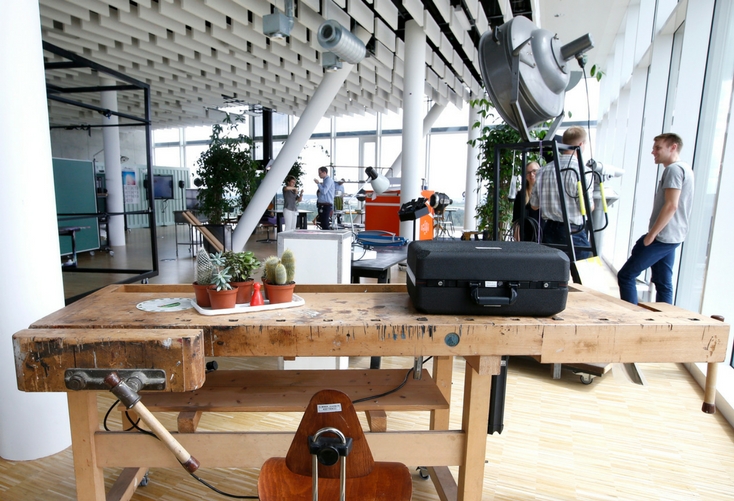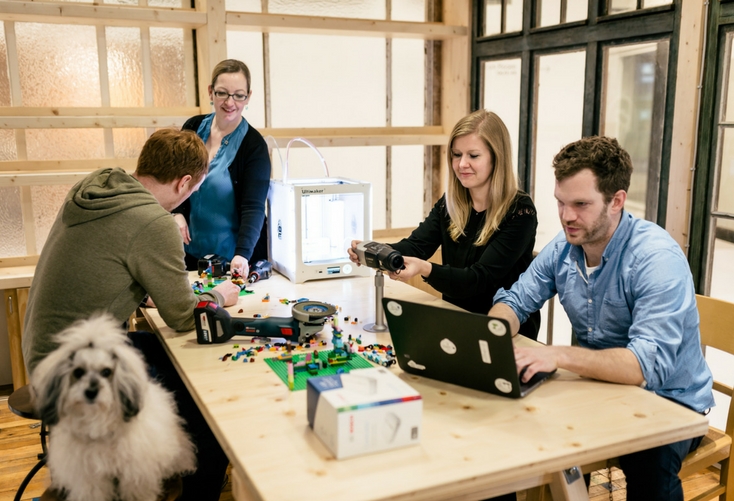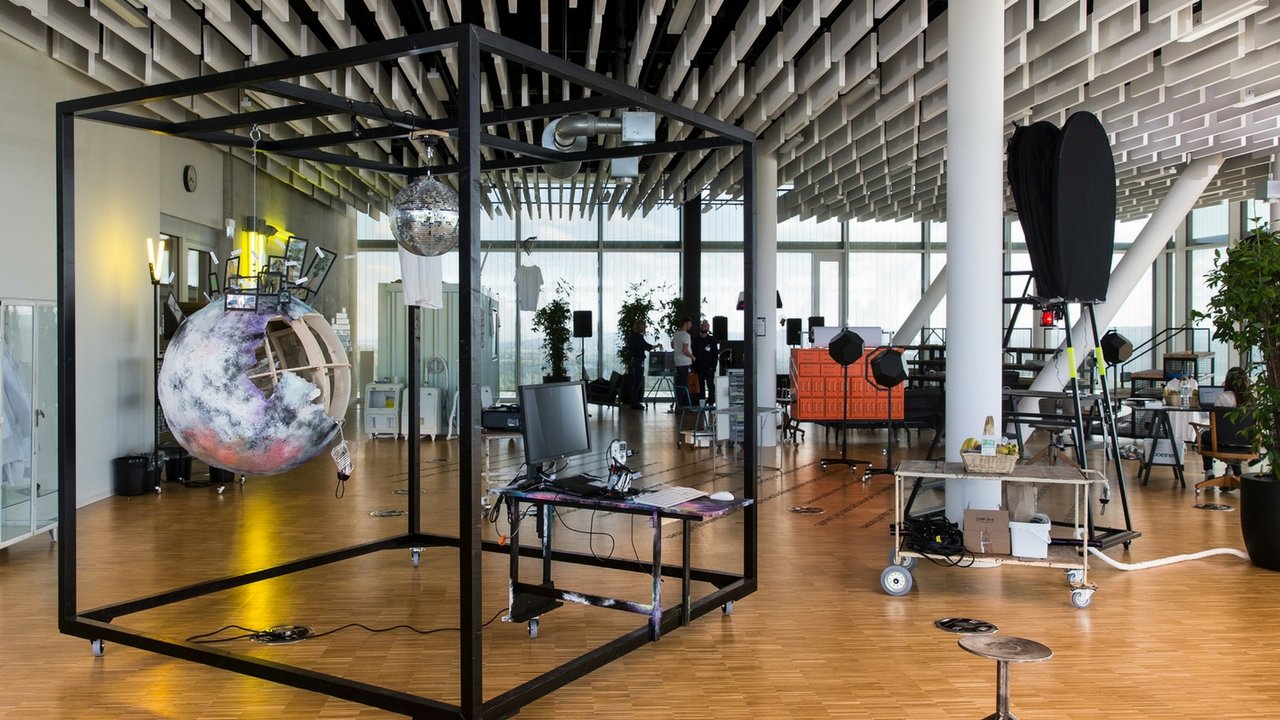- Number of companies with 1,000+ staff using WeWork has doubled in the last year
- Big businesses use coworking to save money and find partners, clients and talent
- A new wave of coworking/corporate spaces are opening up
The rise of the niche workspace is well documented. But there’s a new(ish) kid in town, who’s the polar opposite of the startup scene. And he’s muscling in on the coworking community to grab a piece of the entrepreneurial action that fills such spaces.
Say hello to the new wave of coworking corporates.
It all (properly) started in 2016, when Microsoft announced staff in Atlanta, New York, Portland and Philadelphia could work from WeWork spaces. HSBC, Salesforce.com, Facebook, Starbucks and the Bank of America are now all WeWork enterprise partners.
The number of corporate or enterprise customers (those with 1,000 or more employees) using WeWork has doubled from last year to more than 1,000 businesses and 25% of WeWork’s annual revenue now comes from such companies, according to a recent report from Recode.
The coworking corporate phenomenon isn’t unique to WeWork. As Varun Bhanot, PR and business development lead at UK flexible workspace marketplace Hubble, explained: “Here at Hubble, we’ve had a number of corporations approach us for specific coworking space – some to use as a separate department arm for their company, others to set up a specific innovation lab to work on bleeding edge products.”

For example, Hubble helped Jaguar Land Rover setup its ‘InMotion Ventures’ initiative to work on the future of mobility and has also worked with EY and Shell on similar projects.
“The key attractions are that these are often on flexible license terms so the corporate does not have to commit heavy resource to these projects – that are often treated as innovation experiments or temporary housing of staff. Furthermore, it helps established corporates to develop a more hip, startup image to hopefully appeal to a new generation of millennial customers and staff,” Bhanot added.
Coworking corporations also benefit from average savings of 25% compared to a traditional office lease, according to a recent report by Colliers International.
Hello Corporate Coworking
Many businesses are opening their own versions of coworking spaces. For example, Bosch launched the Platform 12 innovation hub on the top floor of its €300 million research campus in Renningen, near Stuttgart in April 2017.

Michael Kattau, a press officer for personnel and social affairs at Bosch, said: “We opened the Platform 12 space to foster the creativity within our associates. At our research campus, we have more than 1,000 experts, all are specialists in a certain area.
“To come to the best solutions they have to work together. Therefore, we have a lot of communication zones on our campus and we have Platform 12.”
“It’s a space where creativity can flow, where you can break out from daily business and pressure and where you can work on your ideas – together with other colleagues. You can work with Lego Mindstorms, for example. We tell those using the space: please, don’t wipe away your ideas on the boards.
“A clean desk is explicitly not wanted. We want others to continue your work, inspiring you when you come back,” Kattau added.
In May 2017, Bosch also launched the Chicago Connectory in partnership with 1871, which is an IoT innovation co-creation space. Kattau said: “We believe that a connected world is based on partnership and open platforms. The idea of building and creating a space for the IoT community to meet and collaborate and provide them with the best resources for their success was developed between both Bosch and 1871. We focus on three main areas: providing IoT education, supporting startups and connecting partners. For us, the Connectory is a real success. That’s why we’re just opening another Connectory in Germany.”

A brave new world
Spaces run with a corporate and specialist partnership are becoming more commonplace. For example, IBM and tech learning community Galvanize also have a longstanding relationship, which was founded in 2014 with the launch of the IBM Bluemix Garages based in New York and San Francisco.
These garages bring together IBM’s clients and employees to discuss how to build apps using the company’s cloud platform, Bluemix. There are now garages in London, Toronto, Nice and Melbourne.
Coworking group Alley also partnered with telecommunications giant Verizon to open up two spaces in Washington DC and Cambridge, Massachusetts last year. A 5G incubator in New York from the duo quickly followed suit with an initial wave of six startups and two academic partners.
Speaking in a statement, Verizon SVP of Strategy, Innovation and Product Development, Toby Redshaw said: “One of the best ways to unleash the true possibilities of 5G is by getting it into the hands of innovators and visionaries. We see Alley as a logical first place to do just that.”
This is an important point. Enterprises are keen to tap into the innovation and flexibility many coworking spaces provide. It enables them to find clients, top talent and form partnerships with fledgling businesses set to disrupt their industry.
WeWork seems acutely aware of this fact and acquired the NYC coding bootcamp, Flatiron School, at the end of last year. WeWork then took its learning drive one step further at the start of 2018 and partnered with digital education company 2U to provide online graduate programs to students.
However, can such enterprise-based initiatives really be categorised as coworking spaces?
Maybe not.
The stakeholders of such spaces are not impartial within whichever industry they target, and this corporate/coworking hybrid is indicative of the wider homogenisation in coworking.
But, does that really matter?
Surely, the inclusive nature of coworking means it should not be exclusive to freelancers and startups. Corporations are taking the basic methodologies developed in coworking spaces and modifying them into a viable business model to foster innovation for such large enterprises.
In many ways, coworking could represent salvation for such incumbent corporations as they struggle to remain competitive in an increasingly disruptive set of markets and industries.
Big corporates aren’t taking over coworking, they’re learning from it.


















